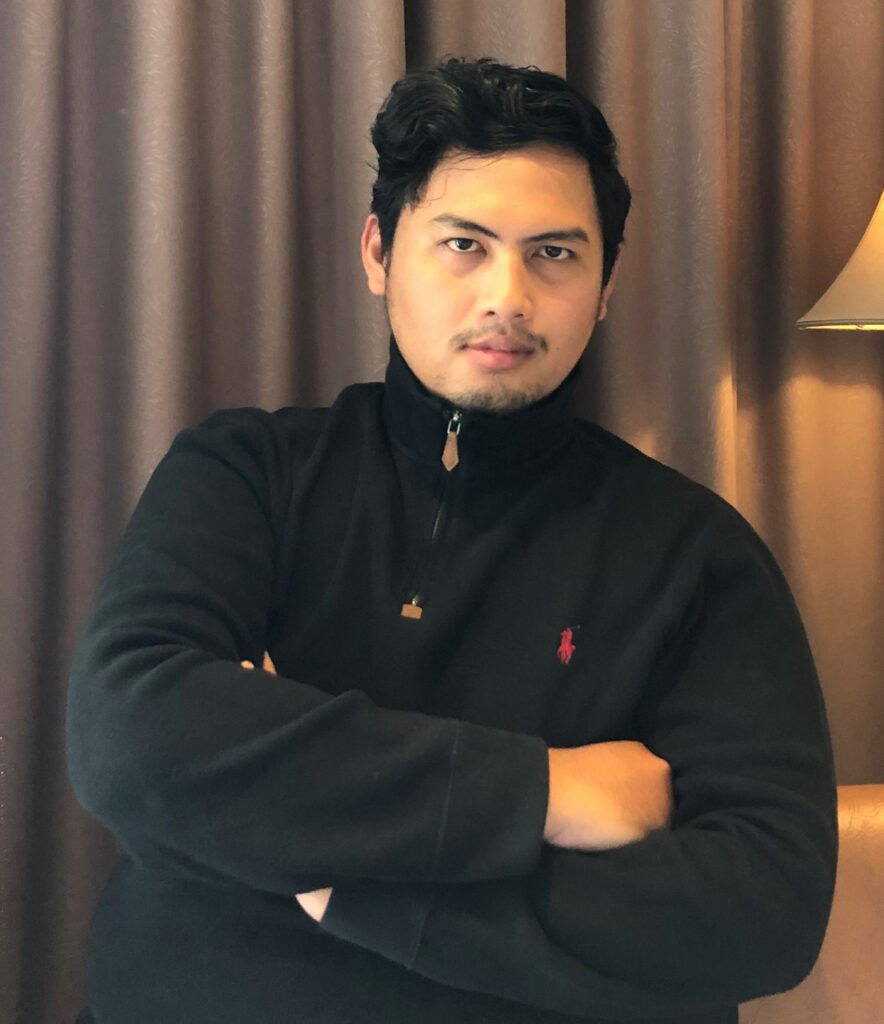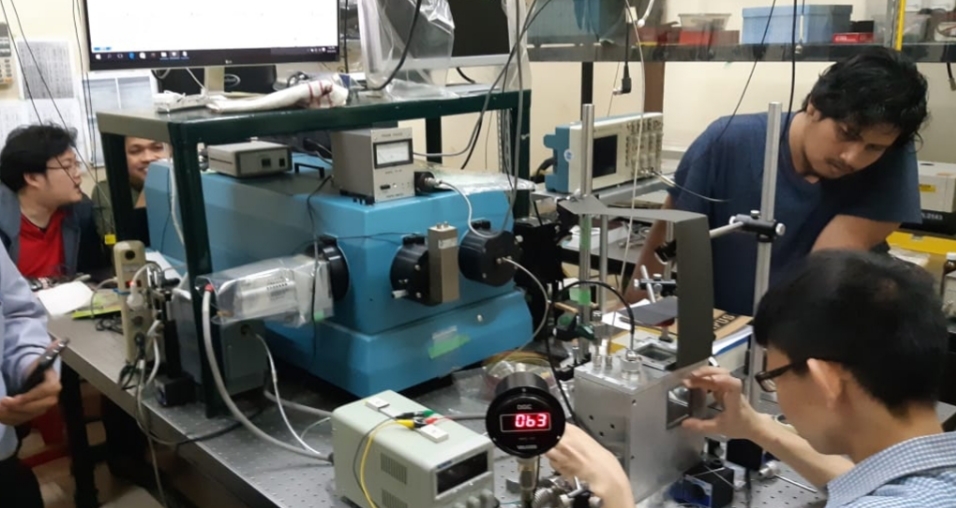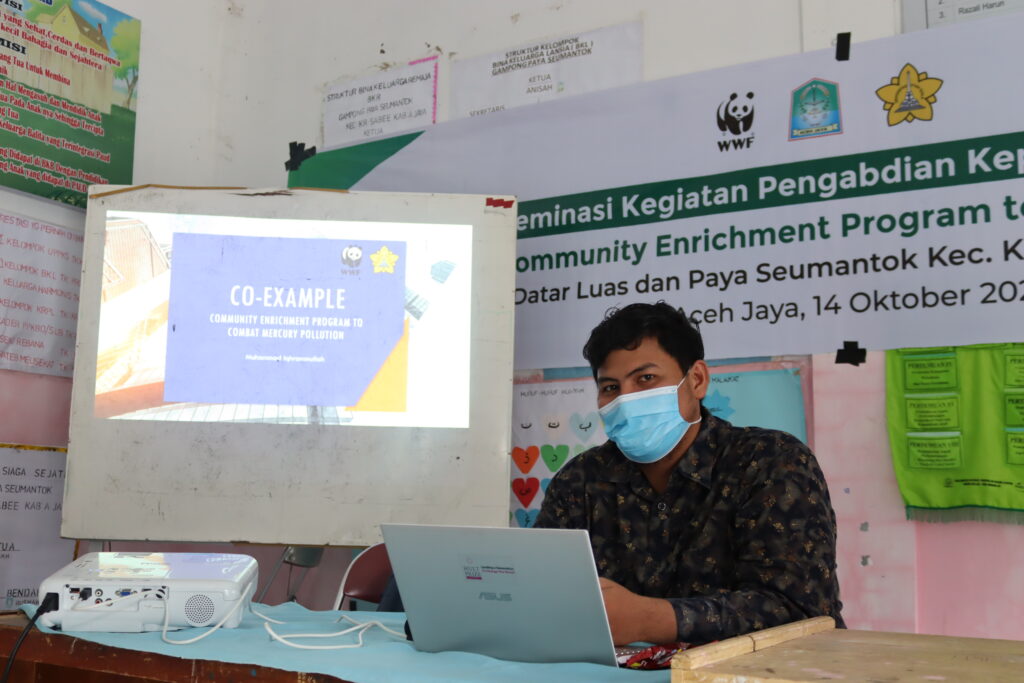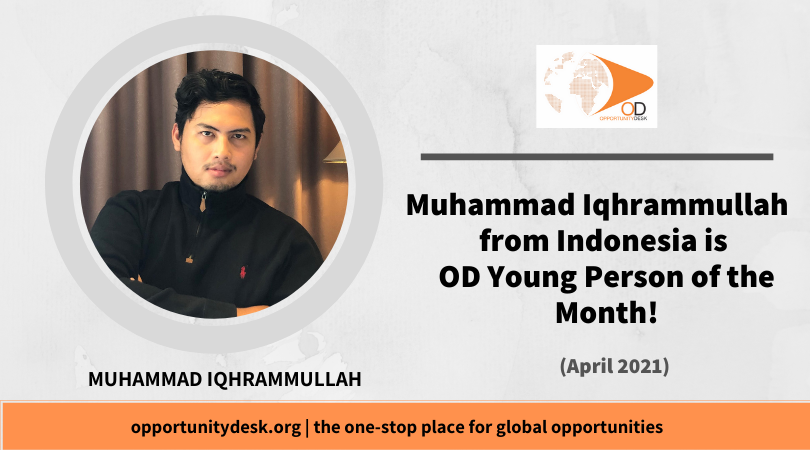Welcome to April!
Our Young Person of the Month is Muhammad Iqhrammullah from Indonesia! Muhammad is a doctoral researcher from Universitas Syiah Kuala working in the wide range of the chemistry field. He is currently initiating many research projects involving young researchers from various fields: biology, chemistry, environmental sciences, medicines, etc. Muhammad’s works have been published in many reputable scientific journals and have impacted the community directly. He was the 2nd place winner of the 2021 OD Impact Challenge!
Read his journey below and be inspired!
MUHAMMAD IQHRAMMULLAH

Muhammad Iqhrammullah is a leading young chemistry researcher from Indonesia whose works have been published in many reputable scientific journals and have impacted the community directly. He is presently pursuing his doctoral research at Universitas Syiah Kuala. Taking a part in achieving global sustainable development goals (SDGs) through researches in the field of chemistry is what he would like to achieve from his career.
“I don’t want to be a mere bench chemist who only work in the laboratory, I also want to empower the community with science,” He said when asked about his work. Last year, he had a project with his professor and other colleagues that encouraged the local community to abandon the mercury use in an artisanal gold mining. “Mercury is the most dangerous substance among other heavy metal. It is worsened by the fact that the effect takes years to surface. People may not feel it right now, but it is certain that in the 20 or 30 upcoming years, they can see the effect,” He said explaining about the urgency of his project. “By that moment it will be too late.”
The project was carried out by employing the concept of citizen science. In contrast to the conventional science that only takes the community as the research subject, citizen science demands the active participation of the community as the researchers themselves.

“It is difficult because we deal with people who do not have a background in science, especially in the project I was working in, the people did not even have proper formal education.” The citizen science, he says, if designed in the right way, may boost the community’s sense of belonging towards the project. “Of course, there have been many attempts to discourage the community in using mercury and encourage the use of other safer alternatives. But those attempts were not effective because people do not believe the projects would genuinely benefit them,” said Iqhram explaining the importance of sense of belonging.
He believes there is a lot of things that researchers need to work towards in order to bridge the gap between science and the people in general. He says that the gap between the researcher and general public persists as a major challenge in communicating the research results. “I think researchers cannot just publish their research in a scientific paper and expect the community to understand themselves.” The gap is bigger when the general public does not have access to the complicated and high-end technology used in the research. “Many of the technology used in the research requires specific skills of the operator,” he added.
Therefore, Iqhram works in realizing the technology that can be used by everyone even without them having specific technical operating skills. “I synthesized polymeric adsorbent from renewable materials to help the sampling process to be easier.” He has successfully synthesized various urethane-based polymers and used Laser-Induced Breakdown Spectroscopy (LIBS) to analyze the heavy metal concentration in the water. “The idea is, after the sampling using the polymeric adsorbent, the adsorbed heavy metal can be further quantitatively analyzed with LIBS. LIBS is a very sensitive tool which can give an accurate result, but on the other hand it is also sensitive against interferences such as water. Hence, converting the aqueous heavy metal into a solid form with the help of adsorbent is required,” he added.

Iqhram believes connecting people with science could accelerate the realization of SDGs. “I wish someday people could use the products I create from the laboratory-based research, and eventually, we can close the gap between science and the community.” He concludes.
You can connect with Muhammad Iqhrammullah on Google Scholar, Research gate, LinkedIn and Instagram!
Who will be the next Young Person of the Month?
You can be the next Opportunity Desk Young Person of the Month! All you have to do is get a friend to recommend your work or fill out the nomination form here. We want to use the platform to recognize and celebrate the efforts of amazing young people around the world. Oh! And you must be an active Opportunity Desk member, either as a fan, reader or subscriber!

